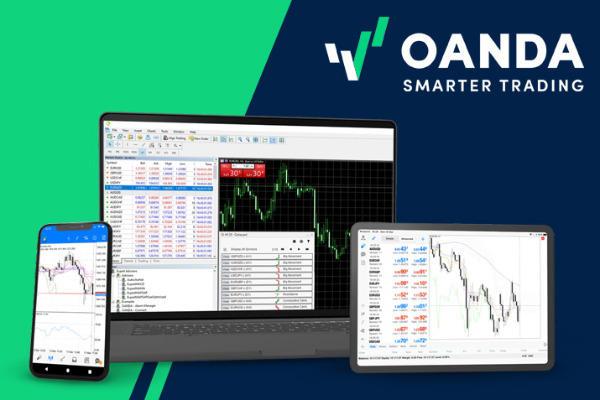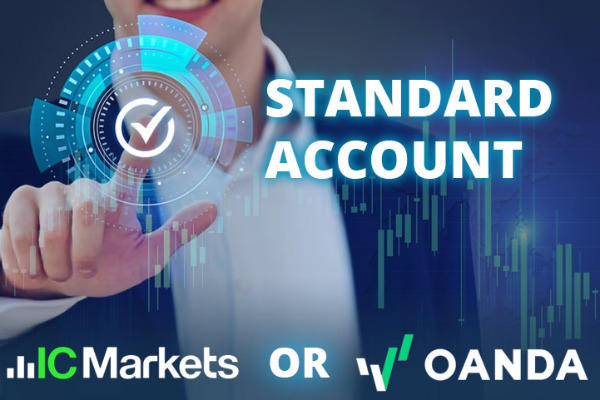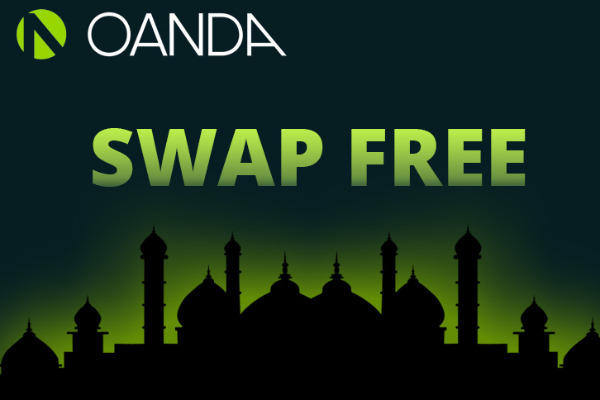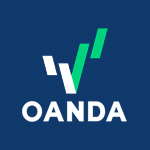As one of the most established brokers out there, it's understandable to see OANDA fees as a reference when it comes to trading costs.
One of the most important aspects when choosing a broker is fees. It's important to understand that online trading is not a cheap investment, so choosing a broker with affordable fees can actually make a difference to your budgeting plan. Unfortunately, not all brokers with low fees are favorable for traders. One should also make sure that the broker is reliable and offers good protection for the users' funds as well.
Now, if you are looking for a well-balanced broker with affordable fees, you might want to check out OANDA. Founded in 1996, the US-based broker is now one of the most popular brokers that offer high-quality platforms with various features and benefits. In this review, we're going to be focusing on OANDA fees.
Traders looking for brokers with accurate precision, OANDA can be an option. That is because OANDA is a broker that provides quotes with 5-digit accuracy and active price movements that follow market developments. Order execution speed is also faster in this broker.
It provides benefits for novice traders, as they can trade with smaller volumes using the calculation system based on currency value, unlike other brokers adopting the lot system.
Founded in 1996, OANDA was built by Dr. Michael Stumm who is a lecturer in Computer Engineering at the University of Toronto, Canada, along with his colleague, Dr. Richard Olsen of The Olsen Ltd., which is one of the leading econometric research institutes. They have a head office in San Francisco, United States.
OANDA branch offices can be found everywhere. Some of these offices are located in the United Kingdom, Singapore, Japan, and Canada. With this number of offices spread, OANDA has increasingly attracted the attention of clients worldwide.
OANDA's company is registered under several well-known jurisdictions in financial trading. They are regulated by CFTC and NFA in the US, FCA in the UK, ASIC in Australia, and many others. Traders do not need to worry anymore about security when trading in OANDA. However, these advantages make trading rules at OANDA more stringent compared to other brokers.
For example, OANDA only allows maximum leverage of 1:20, because the rules in the US and Japan do not allow leverage above that. Besides, the registration procedure is more complex due to various additional requirements that are not submitted by other forex brokers. On top of that, hedging is not allowed in one trading account as the client must open an additional account to hedge.
Nevertheless, OANDA is known for being a leading broker with many advantages offered. OANDA faces increased market risk during periods of price volatility, such as economic and political news announcements. When market spreads increase or decrease, their pricing engine widens or narrows spreads accordingly. That way, traders can get the latest conditions from price movements in the market more quickly.
Prices move very fast in the market. Especially when news releases have a large impact on market volatility. This condition is often exploited by brokers to take advantage of clients with Requotes. However, traders do not need to worry about additional costs when trading with OANDA.
The company never withdraws Requotes so traders can get maximum profit. When traders are unavailable to monitor open positions, they can set take profit orders to lock in profits and Stop Loss orders to help protect against further losses.
As an experienced and well-known online forex broker, OANDA is committed to maintain an efficient trading environment that reduces latency and provid tools to help clients manage the degree of acceptable slippage.
With a fast & reliable trading platform by OANDA, clients' trades are executed in 0.012 seconds. This suits traders who choose brokers based on execution speed.
Because of this exceptional execution service, it is not surprising that OANDA won many awards, including the winner of the world's Best Retail FX Platform at the prestigious e-FX awards. The broker is also voted number 1 for Consistency of filling trades at quoted prices, Execution speed, and Reliability of platforms.
There is no minimum deposit or minimum balance required to open an OANDA account. Deposit and withdrawal can be done easily. OANDA provides a variety of payment method facilities, including Paypal, Wire Transfer, Credit Card, and Debit. Traders can adjust it to the region where they live.
OANDA provides more than 100 trading instruments, including 71 currency pairs, 16 indices, 8 commodities (Brent Crude Oil, Copper, Corn, Natural Gas, Soybeans, Sugar, etc.), 6 Bonds, and 23 Metals.
The fxTrade and MetaTrader platform are available at OANDA. These platforms can be used for Desktop and Mobile. Another plus is they have an OANDA Technical Analysis that exists in collaboration with a technical analysis provider called Autochartist.
With these platforms, clients can monitor price movements easier and automatically recognize patterns created on charts, as well as receive alerts when the awaited patterns appear. Access to this technology can be enjoyed free of charge.
In conclusion, OANDA is an ideal broker for traders in need of fast execution backed by many years of experience. The company is also a good alternative for those looking for a well-regulated broker with flexible trading and deposit conditions.
Essentially, there are several types of fees that you should be paying attention to in a broker, namely:
- Trading fees: These are the fees that users must pay when trading. The fees can come in various forms, such as commission, spread, or financing rate. The exact amount may vary for each broker.
- Non-Trading fees: These are the fees related to technical operations that users make in their accounts, such as deposit fees, withdrawal fees, or inactivity fees.
What are OANDA Fees?
Compared to traditional brokers, OANDA certainly offers much lower fees because they are better scaled and advanced. Even among other online brokerage firms, OANDA fees are still relatively low in general. As a result, the broker is considered suitable for many types of traders, particularly active users who like to trade frequently like day traders or even scalpers.
See Also:
OANDA Trading Fees
In general, OANDA offers two pricing options, namely spread-only and core pricing plus commission. This means you can choose to pay the spread with the spread-only option or get lower spreads with commissions with the core pricing plus commission model.
As the name suggests, spread-only pricing would only charge you with spread. The commission is wrapped into the spread, so there won't be any additional cost to worry about. Meanwhile, the core pricing plus commission option offers access to a lower amount of spread, but you need to pay a fixed commission per trade. The total core pricing spreads in OANDA start from as low as 0.0 for EUR/USD, while the commission is around $50 per 1M trade. As for other forex pairs, the minimum spread starts from 0.2 or higher.

It is also worth mentioning that OANDA charges all currency conversions with a 0.5% markup or markdown on the midpoint price at the time of conversion. The currency conversion charge will be applicable when a trade or transaction is conducted in a different currency to the account's home currency, and therefore needs to be converted before use. It also applies to any realized profits and losses as well as any associated adjustments that are conducted in a currency other than the account's home currency.
See Also:
OANDA Non-Trading Fees
As mentioned before, non-trading fees are fees that are not related to buying and selling assets.
Deposit Fees
To begin with, OANDA does not charge deposit fees, so you can make deposits free of charge and there is no minimum deposit amount. According to the official website, you can deposit up to $9,000 (or currency equivalent) to your OANDA account. Some of the supported deposit methods are PayPal, bank wire transfer, Skrill, and Neteller among others. The variation may differ from one country to another, as OANDA is a global-operating broker, and thus needs to follow the rules and regulations applied in each jurisdiction. For instance, OANDA allows payments via PayPal through its Singaporean branch but does not offer the option to clients who register with its BVI subsidiary.
Withdrawal Fees
Unlike other brokers, OANDA also doesn't charge any withdrawal fees, so you are free to withdraw with a number of different payment methods. This is actually a huge advantage because this means you can withdraw your money at any time without having to worry about paying anything. Keep in mind that withdrawal usually takes a few business days to complete, depending on the payment method you choose.
Inactivity Fees
Despite the absence of deposit and withdrawal fees, OANDA does charge inactivity fees. It refers to a £10 monthly fee that shall be charged to an account that has been inactive or has no trading activity for a period of 12 months. This fee will be charged to inactive accounts on the third last weekday of each month, but please note that the fees will not be charged to accounts that have an open position.
The account will be charged until one of the following conditions is met:
- The user decides to close the account.
- The user resumes trading on the account, in which case the account becomes active.
- The account's balance is reduced to zero.
In summary, trading with OANDA offers relatively low fees compared to other brokers, especially when it comes to deposit and withdrawal fees. However, this alone is not enough to determine whether the broker is ideal for you. There are other aspects to consider before committing to a broker, such as security, trading features, indicators, customer service, and more. Therefore, make sure to take some time and do proper research on the broker before registering.

 Unlock Max $5,000 Deposit Bonus after Opening an Account
Unlock Max $5,000 Deposit Bonus after Opening an Account Dedicated FREE FOREX VPS
Dedicated FREE FOREX VPS Free FOREX Virtual Private Server
Free FOREX Virtual Private Server MT4 Demo Contest, Get $500
MT4 Demo Contest, Get $500 Sign Up for an Account, Claim 60% Deposit Bonus
Sign Up for an Account, Claim 60% Deposit Bonus Free MT4/MT5 VPS 2024
Free MT4/MT5 VPS 2024 Send E-mail and Get Free Merchandise
Send E-mail and Get Free Merchandise $1K Refer a Friend Bonus for Pepperstone Pro clients
$1K Refer a Friend Bonus for Pepperstone Pro clients Maximize Your Earnings with 100% Deposit bonus
Maximize Your Earnings with 100% Deposit bonus Trade to Win, $5,000 Monthly Demo Contest
Trade to Win, $5,000 Monthly Demo Contest








45 Comments
William
Sep 9 2022
Is OANDA a safe broker?
Sandy
Feb 13 2023
William: Here are the details from OANDA:
OANDA has been an established broker since 1996. OANDA is headquartered in the United States, United Kingdom, Japan, British Virgin Islands, Malta, Singapore and Australia. OANDA will provide Forex/CFD trading services to more than 4 million customers. Based on its headquarter, OANDA company is registered under several well-known jurisdictions in financial trading. They are regulated by CFTC and NFA in the US, FCA in the UK, ASIC in Australia, and many others. Traders do not need to worry anymore about security when trading in OANDA. And the one you need to be noted is the CFTC and NFA (USA Body regulator). The brokers that regulate from this regulator is safest because the term to get regulated in there is very difficult and the penalty is heavy if the brokers break the law, even break the small law's detail!
This broker number registration is : CFTC/NFA 0325821, FCA (UK) 54257, FSA (Japan) 1571, FSC (BVI) SIBA/L/20/1130, Kanto Local Financial Bureau (Japan) 2137, MFSA 18.12.2020, MAS 200704926K and ASIC ABN 26 152 088 349 AFSL number 412.
YOu can check yourself by searching the body regulator that you want and enter those number to check if the regulate number is true or fake
Kalsey Winstor
Sep 13 2022
Is there a minimum withdrawal amount?
Jenny
Feb 15 2023
Kalsey Winstor: There is no minimum withdrawal in OANDA but the payment method that used has the minimum funds in order to process your withdrawal process. There is some lists of the minimum transaction that needed in common used by OANDA's traders
You need to be know that deposit and withdraw payment option needed to be same. So, make sure to choose the best payment method for deposit and withdraw. Read this article if you want more information about OANDA withdraw : how to deposit and withdraw at OANDA
Hudson
Sep 21 2022
How long will I be charged an inactivity fee?
Pebby
Feb 15 2023
Hudson: If your account is inactive for 12 months, you will be charged an inactivity fee. The fee is £10 or USD depending on the exchange rate between pounds and dollars. So it goes higher or lower. Fees are charged monthly until the account is empty.
But you should be careful with open positions. Once you open a position, your account will be tracked as an active account. Therefore, the position must be closed first. Secondly, during maintenance your account will be d and all trading journals will be d as well. Therefore, we recommend that you monitor your account before closing it.
Kathleen
Sep 27 2022
If I never funded my account, will I still be charged an inactivity fee as well?
Teddy
Feb 13 2023
Kathleen:
In this case, your account will be permanently d if your funds are not sufficient to pay the inactivity fee. So, if you are planning not to trade with OANDA, you are better off withdrawing all your funds and before withdrawing you need more money to do so, even though OANDA does not impose a maximum withdrawal limit. Minimums for their merchants, the payment options of your choice such as bank transfer, e-wallets or other payment options require different minimum amounts to process your withdrawal request.
It is very important to monitor your funds if you are going to stop trading. Better stop trading before your amount is lower than the payment option allows
Samantha
Sep 30 2022
What happens to the inactivity fee if I resume trading in my inactive account?
Michael
Feb 13 2023
Samantha: Simply, the fees that may be added to you will be waived because you have already started trading, i.e. your account is active for trading. During this time, previously charged fees cannot be recovered.
I don't know how long your account is inactive (meaning your account is inactive for trading for 12 months), you better have a deposit if you are still going to trade with OANDA in the future because if you have no deposit or your deposit is not enough to pay the inactivity fee, your account will be d forever.
Sammy
Feb 15 2023
Michael: It maybe stupid question but I think I need to ask. Why should OANDA charge an inactivity fee? I would rather have a button to close my account than an inactivity fee. Even other brokers had the feature of not offering inactivity fees.So traders can be reassured that their money is safe when they stop trading there.
And without these inactivity fees, I can feel like my broker is really in responsible to my account and my funds, giving me peace of mind when I need to stop doing trade for some times or stay for a while to forex trading.
Rendo
Feb 15 2023
Sammy: I disagree with your reasoning and statement about the inactivity fee. The main reason why OANDA and some brokers charge inactivity is because of the broker's servers. The more accounts are added to their servers, the more power is required. And the server must be quality because it will also affect the transaction. And the more accounts open, the more expensive it is to maintain. In Forex Trading, multiple accounts will be inactive.
And I can be sure that every broker will have more inactive accounts than active accounts because most traders, especially beginners, will quit Forex if they fail or lost all money. Broker cannot withdraw your funds without terms and conditions especially segregated account. So they will be charged an inactivity fee and that is agreed because you agree to the terms and conditions upon signing up.
Johnson
Feb 15 2023
Sammy: Dude, how long are you going to stay away from trading Forex? I mean OANDA will only charge the account with no activity for 1 year. If you leave it for a month, you will not be charged. But if you are planning to take a break for 1 year, I think you need to learn Forex again if you are going to start Forex again.
I mean, the inactivity fee is like a warning to traders to trade earlier before being charged by the broker. And you don't need to take a break for 1 year, and I think as a trader this is a very unnecessary rests.
Sammy D
Feb 27 2023
Sammy:
Certain brokers impose account inactivity fees as a way to encourage their clients to be active and to generate revenue for the broker. An account inactivity fee is typically charged when an account has been inactive for a certain period of time, such as 6 months or a year, and the client has not made any trades or deposited any funds into the account during that time.
Here are some reasons why brokers may impose account inactivity fees:
So, if you consider yourself in a disadvantage here, you can always look for better option elsewhere (no one is forcing you to stay trading with a broker)
Sean
Sep 30 2022
Hey there! Bsed on the article, OANDA really offer two types of pricing. They've got this cool feature where you can choose between spread-only and core pricing plus commission. It got me thinking, what could be the reasons behind OANDA offering these two choices? I mean, it's pretty neat to have that flexibility, right?
Now, if we delve deeper into it, let's explore the advantages of each option. With the spread-only model, you pay the spread on each trade. It's straightforward and hassle-free, which can be appealing to traders who prefer a simple approach. On the other hand, the core pricing plus commission model offers the potential for tighter spreads.
I find it fascinating how different traders have their own preferences and trading styles. Some folks may prioritize transparency and ease, while others are all about optimizing costs and getting those tighter spreads.
So, what are your thoughts on this? Which option do you think would work best for you? Let's chit chat and dive into the exciting world of pricing options in trading!
Diego
Jan 25 2023
I've heard a lot about OANDA which is said to be friendly to novice traders, but I still don't know much about OANDA. Every novice trader, in my opinion, definitely likes trading at relatively low prices because they still don't have much experience in trading. but low cost is the second factor for me in recovering the trading platform, safety in trading is also an important aspect I say. because the more regulations that this broker can get, the more traders feel safe depositing their money.
In your opinion, is this broker worthy of being called a safe broker? if anyone knows who can help answer yes... thank you.
Backy
Jan 25 2023
Diego: OK, friends, I want to help explain a little about the security of our account at OANDA. In my opinion, OANDA is one of the forex brokers that has been in this field for a long time because it started operating in 1997. wow, that's quite a long time in my opinion, because most forex brokers just started around the 2000s. Now for OANDA's own regulator, the good news is that it is regulated by 8 top-level international regulators, namely:
Thomas
Jan 25 2023
Diego: hello guys, I also want to help answer, is the OANDA broker safe for trading activities? My answer is that it's not too safe either. because apart from being regulated by more than 7 international regulators, there is something this broker lacks, namely negative balance protection. OANDA Global Markets Ltd does not offer negative balance protection, so traders may lose more than they invested.
but the positive side of this broker is that trader funds will be kept separately. So, if you want to consider this account as your trading broker, that's fine, but you can learn more to avoid doubts.
Haston B
Feb 7 2023
OANDA is generally considered a safe and reliable forex broker. It is regulated by several financial authorities, including the National Futures Association (NFA) in the United States, the Financial Conduct Authority (FCA) in the United Kingdom, and the Australian Securities and Investments Commission (ASIC).
Having multiple regulatory bodies oversee its operations provides an additional layer of protection for clients' funds and helps ensure the broker operates transparently and in compliance with industry standards.
However, like with any financial service, there is always some level of risk involved, and traders should always thoroughly research a broker before investing their funds. Additionally, it's important to implement risk management strategies and never invest more money than you can afford to lose.
Gleen
Jan 25 2023
In my opinion, OANDA can be said to be a broker that is not complicated at all (easy) in terms of depositing and withdrawing funds. and yeah what's fun here is the freedom to deposit funds. many brokers require their customers to start a deposit by limiting the minimum deposit. But the good news is, you are free here to make a deposit, regardless of the value, if you want to deposit, you can start from the lowest figure.
However, as far as I know, the deposit fee is free at OANDA, but if you withdraw funds via the bank transfer method, there is a fee. bank transfer withdrawals are charged 20 USD per transaction and take 2-4 working days. It should also be noted that banks may charge a processing fee, especially in the case of international bank transfers.
Immanuel
Jan 25 2023
Gleen: if I prefer the deposit and withdrawal method at OANDA, it's Skrill/Neteller. when compared to other withdrawal methods, Skrill/Neteller is the fastest method in my opinion for both funding and withdrawing funds.
Deposits with Skrill and Neteller are free and take up to 1 business day – However, Skrill/Neteller may charge a service fee. Withdrawals to Skrill and Neteller take up to 1 business day and are also free, although conversion fees may apply and Skrill/Neteller may charge additional service fees.
For other funding methods, the process of funds is quite long, around 1-3 days for the credit card method and 2-4 working days for the bank transfer method.
Ghuk Tae
Apr 8 2023
Why some brokers need to see your ID whether you are a Muslim or not. I can say that because it's a free exchange account in my country Free to choose. I don't need to be Muslim to enjoy a swap free account. So I can freely change my standard account to swap free account. But some other offshore brokers asked me to verify my ID. Due to swap-free, are the broker's profits reduced and therefore swap-free accounts cannot be opened easily? Also, regarding OANDA, are there any requirements to open a swap-free account?
Phin Kun
Apr 9 2023
Actually, I don't know the broker's policy regarding swap-free accounts but for sure, some brokers need to see your ID because they just want to facilitate Muslim traders to trade freely without any tariffs. But if you say about decreasing broker profit totally wrong because swap free account only means you don't earn any rate fee earned during switch day. all real currencies have exchange rates, and those rates can vary each day so they form the basis of swap rates. So, it's not the broker's profit that goes down, but that naturally happens in Forex. Yes swap free accounts do not need to pay rollover fees/overstay fees but they do need to pay more like double spread or administration fees for example.
The main and only advantage that I know of in a swap-free account is that it is free of rollover/overnight rates. For swing traders who trade for weeks, months. The swap rate is actually very annoying because it happens every day. But if you are on a swap free account you will not get that fee but for change you will get fees like commission or other fees. Of course the fee is lower than the swap rate that occurs nightly. So, it is attractive to swing traders. However, if you are a scalper or day trader and you are Muslim, you can actually trade on a standard account because you are only trading on that day. And for the record, if you are day trading, just avoid changing the time of day to avoid exchange rates, and all your trades will be Halal for you.
Finlay
Apr 9 2023
Swap-free accounts are generally chosen by Muslims and are often referred to as Islamic accounts in general. This is because Islamic sharia law prohibits interest-bearing business transactions; Swap is considered the same as usury because it is taken from the difference in interest. Therefore, not a few Muslim traders choose this type of account. However, it is not uncommon for many traders to choose this account even though they are non-Islamic.
although for a limited number of instruments to trade using this Swap Free account. For me this is enough for trading, and the instruments included in this trading account are also popular and widely used by traders.
By using this account to trade on Oanda, I can eliminate the swap risk that arises when I trade overnight positions, because I also have to take into account the negative swap risk in risk management. Instead of being burdened with that risk, it will be easier for traders to be free from Swaps.
At OANDA Swap or what is commonly called fees are calculated per position and can be in the form of fees or credits to your account, depending on whether you are in a buy/long or short/sell position. and also Swap fees are charged if account positions are left open overnight after 5pm ET.
for me, fixed costs are costs be it swaps, spreads and commissions. But it should be noted again, as a trader I also do not want to be limited. Now, the limited meaning here is that we cannot access all the instruments on OANDA and can only trade by choosing from 26 foreign exchange instruments and indices.
Justin
Apr 8 2023
I don't know much about this broker but I think OANDA is a good broker because they can also expand their market in US. As far as I know, very few brokers can enter the US market. Because of course there are very strict rules for trading.
We can conclude that this broker is recognized by American traders. I think US traders will recognize this broker. I was very surprised that they also have an office there. I think this is a great achievement for a forex broker. But because I rarely hear about this OANDA broker, I don't know if this broker is suitable for beginners. Friends, can you explain that this broker is suitable for novice traders, especially in the US? Thank You
Adamma
Apr 9 2023
Hello friends, your question is very to the point, and I think it's good. Along with technological developments and also interest in forex trading is increasing every day. Lots of brokers offer trading with all the advantages shown. Maybe for experienced traders choosing a good broker for them is not too difficult because they already have knowledge regarding trading. However, for novice traders, it is not easy to choose a suitable broker for them. Not all brokers provide appropriate and decent services for novice traders. Well, this corresponds to your question regarding OANDA for novice traders.
In my opinion, OANDA provides a feature that all novice traders including US traders need, namely its educational features , novice traders will get a relatively friendly user experience with a structured education section available for traders with different experience levels. Considering OANDA's history as an FX data service, it's no surprise that the market analysis it offers is incredibly detailed and excellent.
Even though US traders restrict access to all the instruments offered by this broker, Forex is still available to US brokers. I think for novice brokers, Forex instruments are very popular.
Ukrain
Apr 10 2023
Yes Maybe if I agree with you about educational features, I admit that OANDA is indeed good in terms of educational features and more for novice traders. But I disagree with you, because OANDA's education section cannot be found easily on the OANDA website. This section is not linked from the menu at the top of the page and can only be found in the menu at the bottom of the page. I don't know if this was intentional or a form of negligence on the part of the OANDA team.
And yes, even though the educational features are good because the educational section placement features are not quite right, I can't say whether this broker is good or not for beginners. But what I need to emphasize here is that OANDA has successfully entered the US trading market, and this is an achievement, even though the instruments it offers are very limited, only forex and currency pairs, and even then not many products.
Taeyang
Apr 11 2023
Oanda is a broker that offers hands-on setup, offers trading instruments, competitive prices and a state-of-the-art trading platform including educational features that have been programmed to suit novice traders.
If you also look at the funding sessions, I think this broker is good and provides low fees. OANDA does not provide a minimum deposit limit so it is not burdensome for beginners. OANDA provides 3 deposit and withdrawal methods, namely Bank Transfer, Credit/Debit Card, and Skrill/Neteller methods.
Of all the methods provided, nearly all are free for deposits and withdrawals, although conversion fees may apply and Skrill/Neteller may charge additional service fees and banks may also charge processing fees, especially in the case of international bank transfers.
Lukita
Apr 8 2023
As explained in this article, OANDA is one of the brokers who have successfully entered the American trading market. I think OANDA is a good broker when it comes to customer support.
In trading, every second is money. This means that if there is a problem with the platform or account it can prevent you from making profits in trading. Therefore a broker with agile customer support is what traders need. In my opinion, OANDA has fulfilled its customer rights 24/5 with multi-language support.
Despite the holiday trading jams, traders can still contact their customer support team at any time via email. there is also online live chat and phone support also available during trading hours. So I think all customers from OANDA get comfortable trading, including traders from America.
Honey
Apr 9 2023
I agree with you that OANDA broker's customer support is good enough for all traders. After all, OANDA is a broker with the perfect trading platform for everyone. FxTrade is powered by OANDA. The system is designed to be easy to use and offers some of the best tools to support Forex and CFD trading, although CFDs are not available to US traders.
But each feature naturally has its drawbacks. And as for this feature of FxTrade, the downside is that it doesn't have a super modern design and the functionality is still quite a pain to use. If you wish to view forums, news and analysis on the platform, you will be redirected to a new browser instead of being opened on the platform.
Despite the lack of features, FxTrade still caters to the trading needs of all experience levels. You have all the tools you need to trade and other useful features to help you trade with a few clicks.
Oliver
Apr 8 2023
US traders can only trade currency pairs or currency pairs on OANDA. CFD trading is not available to traders in this region." I understand that US regulated brokers like OANDA have strict rules for safety reasons. However, what bothers me is how limited the options of US traders are. I mean, Forex trading is still allowed, but not for gold, silver and other CFDs such as stocks and indices. These restrictions can limit the diversity of assets and prevent traders from trading Forex. At the same time, traders in other parts of the world have more freedom to make trading choices. I wonder why regulators US like NFA and CFTC do not allow CFD trading?
Emilie
Apr 9 2023
Oanda is a US forex broker. Oanda offers a high-quality and easy-to-use trading platform, and powerful research tools, with a wide range of technical indicators and a great API offering. The account opening process is user-friendly and fast. On the downside, Oanda has a limited product portfolio, as you can only trade forex and CFDs.
Well, like this - US regulators like the NFA and CFTC have pretty strict rules about trading, and they don't allow certain types of financial products like CFDs. It's a bit of a disappointment, because it means traders in the US can't diversify their portfolios as much as they'd like. Basically, they can still trade Forex, but they miss out on the other cool stuff like Gold, Silver, and several types of stocks and indices.
It's a bit of a shame, because it means traders in the US have less freedom than traders in other parts of the world.
Munachiso
Apr 25 2023
OANDA has grown into a large multi-service financial company offering retail CFD trading, Forex data services for institutions, and exchange rate information on more than 38,000 currency pairs. As an international CFD broker, OANDA is highly regulated, with regulatory oversight from no less than 7 top-level national regulators.
OANDA has won numerous awards for its services and products over the years, such as Best Educational Material 2018 (Investing Trends - US Foreign Exchange Report) and No.1 Forex Broker in Singapore 2017 (Singapore Investment Trends CFD & FX Report). Recently, OANDA was voted Most Popular Broker and Best Forex and CFD Broker 2020 by TradingView clients in the company's inaugural TradingView Broker Awards. TradingView is one of the world's largest social networks for traders, having more than 15 million registered users worldwide.
Overall, due to a history of responsible behavior, strong international regulations, stringent auditing processes, and wide industry recognition, we view OANDA as a broker we can trust.
Kirsteen
Apr 25 2023
I actually like trading with this OANDA broker because the customer support of this broker is very responsive and responsive, especially when compared to the complex trading software available from other brokers. In addition, the educational features are very supportive, especially for beginners who are just starting trading. OANDA provides good customer training along with excellent research.
Unfortunately, we only offer currency pairs and forex trading for US traders who are unable to use all of the trading instruments on offer. This is a limit for American traders who like other commodities. As many traders know, cryptocurrency and CFD trading is becoming more and more popular among traders, especially nowadays. i really don't like this.
Ostland
Apr 25 2023
@Kirsteen: Wow, wow, that means you missed this hot news from the OANDA broker. Okay, well, let me tell you that at the end of October 2022, American traders will be able to access Cryptocurrency trading instruments. The broker announced the launch of a new cryptocurrency trading offering on the US market, designed to provide investors with easy access to crypto alongside their existing forex portfolio in a secure environment.
As you have explained, cryptocurrency trading is very popular among traders these days, and OANDA has established itself as a trading provider with access to cryptocurrency trading for its US customers.
Everything from opening a Paxos account to funding to trading is managed within the app so investors can seamlessly access major cryptocurrencies such as Bitcoin, Ethereum and PAX Gold against the US dollar from an intuitive platform.
Even though US traders have not been able to access CFD instruments, the OANDA broker has proven its reliability by adding access to crypto currency instruments in America (US). and this is a good move from this broker to provide easy trading for its customers, especially those in the US. Maybe in time OANDA will also be able to get access to CFD instruments. Nobody knows about this.
Raghnaid
Apr 25 2023
@Ostland: Yes, I also heard the news. At this time, I think OANDA is also a good broker for cryptocurrency trading. The launch of this offering is an opportunity for merchants to engage cryptocurrencies and smartly with brands they can trust.
Cryptocurrencies emerged from the counterculture of wanting to trade currencies that were not regulated by a central bank and were not affected by national currencies or major economic events. However, the interest of traders in cryptocurrency trading is actually increasing year by year. For this reason, OANDA is ready to increase the demand for cryptocurrency trading by making cryptocurrency accessible to all traders, including US traders.
Oh, and remember that OANDA has years of experience and an unparalleled record of offering trading in foreign exchange and other derivative products worldwide. Paxos, OANDA's crypto partner, is a leading provider of regulated blockchain infrastructure.
The functionality offered by the OANDA app goes beyond simple 'buy and sell', allowing traders to set limit and stop order parameters in their account to take profits and limit losses on their positions.
Quasimodo
Apr 26 2023
This is the first time I've heard that there is a broker that charges an inactive fee, it feels like we just use a credit card, which has similar terms and conditions. My question is, how many accounts can you open at OANDA? If, for example, we open many accounts and don't have time to trade, will the inactive fee be multiplied by the number of accounts later? Wow, it would be really expensive if like that. Is there a solution to avoid your Oanda's inactive fees besides having to be active in trading?
Leandro
Apr 27 2023
@Quasimodo:You're right, some brokers, including Oanda, charge inactive fees if you don't use your trading account for a certain period. It's important to understand their policies, so let's address your concerns.
At Oanda, you can open multiple accounts. However, each account will be subject to the inactive fee if it remains inactive for a specified period. So, if you have multiple inactive accounts, the fee would apply to each individual account, potentially leading to higher costs.
To avoid incurring inactive fees at Oanda, there are a few solutions you can consider, and one of them is to stay Active. The most straightforward solution is to keep your trading account active by placing trades or engaging in other account activities within the specified timeframe set by Oanda. This way, you won't trigger the inactive fee.
Victor
May 3 2023
When it comes to deposit fees, OANDA has some good news for traders. First of all, the broker doesn't charge any deposit fees, which means you can fund your account without worrying about extra costs. This is a great advantage, especially for beginners who may not have a lot of trading experience and want to start with a smaller amount of money. Additionally, there is no minimum deposit amount required, so you can deposit as much or as little as you want.
According to this article, there are several supported deposit methods available for traders. These include popular options like PayPal, bank wire transfer, Skrill, and Neteller, among others. However, it's worth noting that the availability of these options may vary depending on your country of residence. OANDA is a global broker that operates in multiple jurisdictions, which means it has to comply with different regulations and requirements in each country.
For example, if you're based in Singapore, you may be able to use PayPal to deposit funds into your OANDA account, as this option is available through the broker's Singaporean branch. However, if you register with OANDA's BVI subsidiary, you may not have the same payment options available. It's important to check the deposit methods available in your specific location and to choose the one that works best for you.
Overall, OANDA's no deposit fees policy and flexible deposit options make it a convenient and affordable choice for traders of all levels.
Merianto
May 3 2023
Okay, based on the article, there are two kind of the fees at OANDA and I think also applied in the other brokers too, it is either trading fees and non trading fees. So, I want to ask about the trading fees especially financing rate. I mean what is that thing? I heard about the spread and commission and do know about that, and it is pretty clear that spread and commission are the most common fees that you will get in the trading especially the spread because commission sometimes you dont need to pay for that.
So, what is that financing rate, and when it will charged to the trader?
Leon
May 4 2023
Hey There! The financing rate fee is also known as the overnight interest rate or the swap rate. Essentially, it's the interest that you either pay or receive for holding a position overnight.
The financing rate is a way for brokers to make money off of trades that are left open for more than one day. If you are trading on margin, meaning you are borrowing money from the broker to make trades, you will have to pay interest on that borrowed money. The financing rate is the interest rate that OANDA charges for borrowing that money.
The financing rate can be either positive or negative, depending on the currency pair you are trading and the direction of your trade. If the interest rate on the currency you are buying is higher than the interest rate on the currency you are selling, you will earn a positive financing rate. Conversely, if the interest rate on the currency you are buying is lower than the interest rate on the currency you are selling, you will be charged a negative financing rate.
It's important to note that the financing rate is only charged on positions that are held overnight. If you open and close a position within the same day, you will not be charged a financing rate. Additionally, the financing rate is charged on a daily basis, so if you hold a position for several days, the financing rate will be charged each day.
Merianto
May 4 2023
Oh so basically it is occured when we do the trade overnight, right? It is interesting because I just know about that fees anyway. It seems I need to learn more about the traidng itself to avoid this confusion. So, is there any ways for a beginner trader to avoid financing rate fees when trading with a broker like OANDA? Are there certain trading strategies or account types that can help minimize these fees? And if financing rates are unavoidable, what steps can traders take to minimize their impact on overall profitability?
Leon
May 4 2023
Yes there is some ways to avoid this rate. So, if you're a newbie and you're trying to avoid financing rate fees, here are some tips for you. First, try to avoid holding positions overnight or over the weekend because that's when the financing rate fees usually apply. Second, try to stick to shorter-term trades so that you don't end up holding positions for too long. Third, make sure to check the financing rate fees before you enter a trade so that you're aware of any potential costs. And lastly, consider using a broker that offers lower or no financing rate fees, or even a demo account to practice trading without any risk of fees. Keep in mind that financing rate fees are just one of the fees that you may encounter when trading, so it's always important to educate yourself on all the costs involved before diving in.
Dokja
Nov 24 2023
It's mentioned that OANDA doesn't impose deposit and withdrawal fees, but they do have inactivity fees. This involves a £10 monthly charge applied to accounts with no trading activity for 12 months. The fee is debited on the third last weekday of each month, except for accounts with open positions, which are exempt. I'm curious, what kind of trading strategy involves keeping a single position open for an entire year? Is that even possible in trading? Additionally, is the $10 fee considered high or low?
Zizo
Nov 28 2023
Holding onto a single trading position for a whole year is not something you see every day in the trading world. Most folks prefer dynamic strategies, adjusting their moves based on what's happening in the market, the latest news, and various factors. Keeping a position static for that long might be a bit out of sync with the active and ever-changing nature of trading.
Now, when it comes to that $10 inactivity fee from OANDA, whether it feels like a lot or a little really comes down to how you trade. Personally, I find it pretty reasonable since it's a monthly charge. But for others who aren't trading as often or have smaller accounts, that fee might sting a bit more. The key is for traders to take a good look at their own trading habits and figure out how these fees fit into the big picture of their overall trading experience.